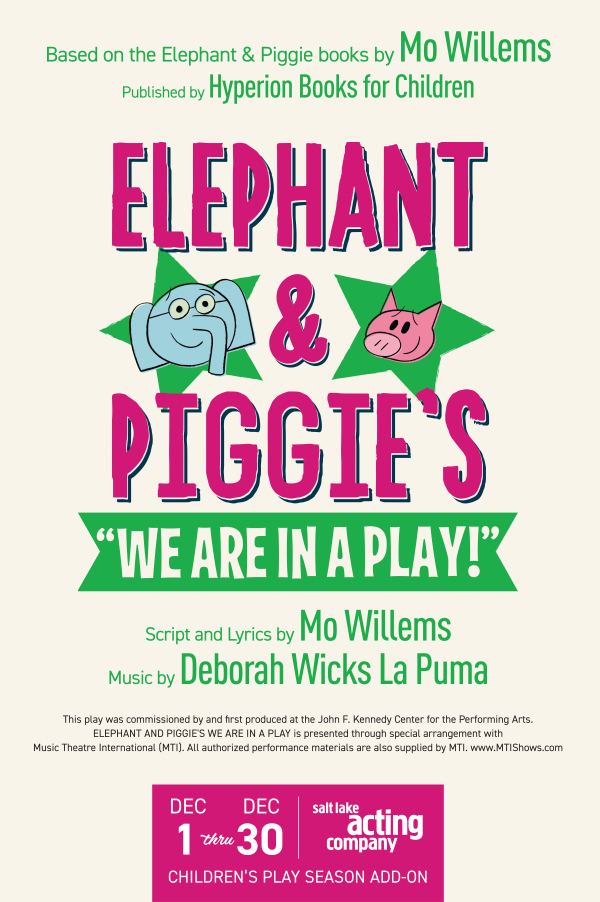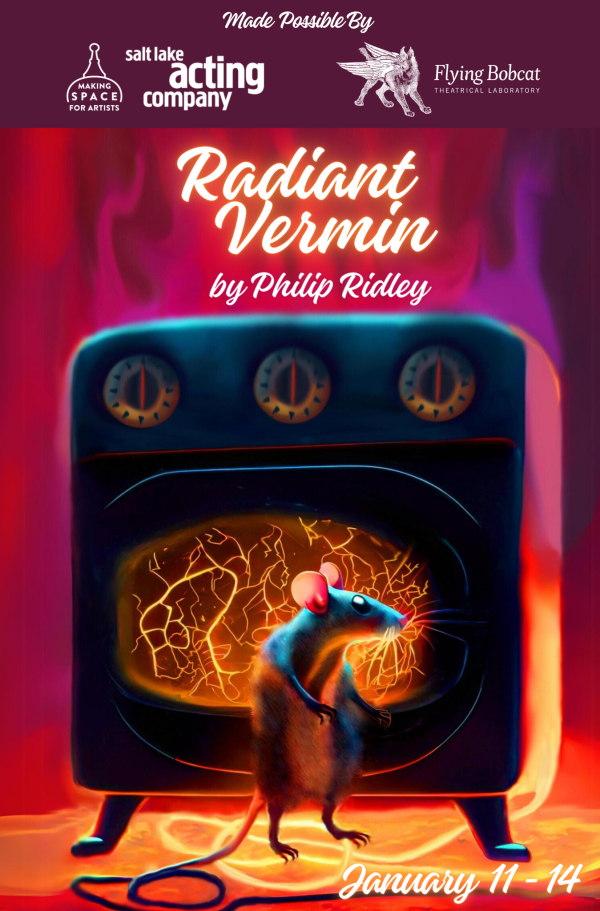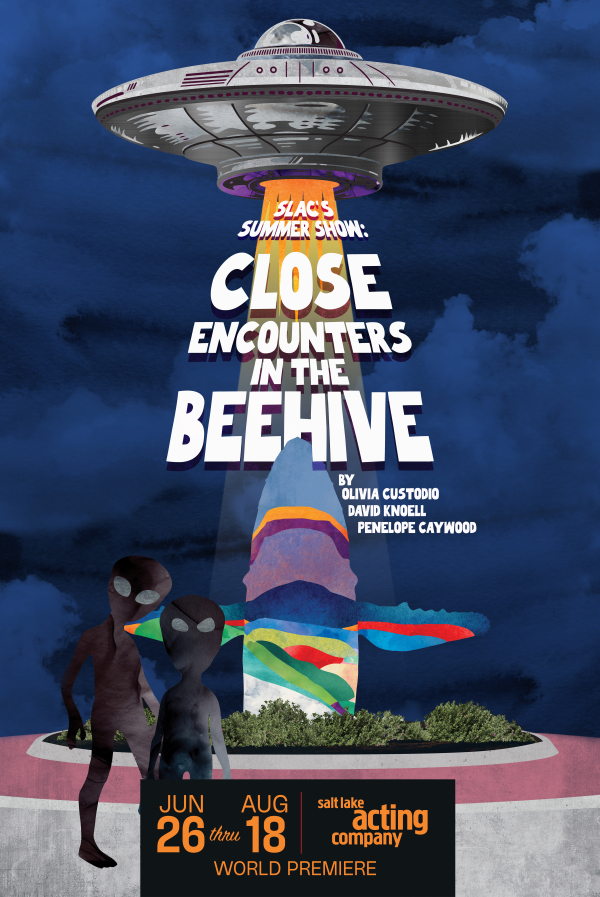In the Room with Troy Deutsch
Erika: You are a young, up-and-coming playwright. Tell us a little more about yourself.
Troy: I am from a town of 4,000 people in Minnesota. I went to school at the University of Utah and was in their Actor Training Program. The director of BULL SHARK ATTACK, Sandra Shotwell was one of my professors. Cassie, who plays Tanya in the show, was one of my classmates. While I was in school with Sandy, we were studying Tennessee Williams and Eugene O’Neill, and I had to turn in a writing assignment. Sandy said to me, “I think you should try playwriting.” I started writing this play called PUSSYCAT that is about the end of the rave scene in Minnesota. After I graduated, Sandy read the play and fell in love with it. She got a grant for the play, flew me back to Salt Lake from New York, and produced the play at the University of Utah. She and I just clicked as director and playwright. We both love language and are very into theatrical plays that reach across the proscenium and grab the audience. The play [PUSSYCAT] really shifted my path and got me more interested in writing than acting. I found an agent in New York and instead of having a two minute audition as an actor, I would have two hour meetings about my plays. I loved being on the outside and the tasks were so much bigger, at least for me, and deeper in a way. I really loved creating a whole world as opposed to inhabiting one part of the world. But I think my acting training was the absolute best training for becoming a playwright because more than anything, I love my actors. I know what they are going through and how impossibly hard it all is to be honest in every moment and to be vulnerable night after night. It’s a fantastic experience to give pages to fantastic actors I admire and see how they go inside. They always bring out way more than I could imagine. For BULL SHARK ATTACK, I wrote the part of Tanya for Cassie and she has been developing the character from the beginning.
Cynthia: How long has that been?
Troy: I started writing in the winter of 2012, then in 2013 I had a reading in New York, then in 2014 we read the play here at SLAC as part of the New Play Sounding Series; I would say she has been developing the character since 2013.
Erika: What was your inspiration for BULL SHARK ATTACK? Why North Carolina? Where did you find these characters? What ignited this whole story in your mind?
Troy: I wanted to write for specific actors and I was really fascinated by monologue plays because they are very difficult and the rewards can be huge. Growing up, I lived in the woods and I was randomly scared of aliens and sharks, and I thought, “Well, what if one of my characters just blows these fears way up?” So I started researching sharks. When I was little, I heard that they can survive in fresh water because a lot of them are born in the mouths of rivers. They have found sharks way up the Mississippi and even into Minnesota. I started to look up where actual shark attacks happen in North America, and North Carolina kept popping up. Then I was researching North Carolina. Most of my writing up until this point had been stories in Minnesota, so this show helped me expand my pallet and tell stores that I haven’t told before. But there is something universal about being from a small town, no matter where that town is located. The desire to move to a big city, the desire to leave all the judgement and small town secrets behind, and to be able to follow your dreams.
Erika: Did you develop all three characters simultaneously or did you take your time with each individually?
Troy: This play came out in order. This play came out pretty much finished. It is very traditional in the form, but very subversive and current in its subject matter. I think Jeffie’s journey was the most complicated. I don’t want to give too much away, because he has the most secrets. When I first wrote it, Jeffie was darker the whole way through, then I found through developing the play, that if we kept him smiling with moments of darkness that made the reveal that much more satisfying.
Erika: This play has seen quite a bit of development at SLAC. It was part of our New Play Sounding Series in 2014, and then was workshopped in our Playwrights’ Lab this year. Were there a lot of changes during that development?
Troy: Plays want to be developed, because there is only so much you can do sitting in your room working or sitting around a table with your friends. You really do need resources and a theatre like SLAC has a lot of resources. Giving us the space with directors, dramaturgs and really great actors takes this play to the next level. BULL SHARK ATTACK really benefited from the time it was given, and I felt like the process was very safe. The work itself was scary but the process was safe. The Playwrights’ Lab was even more interesting because it was a longer amount of time, like 9 days, and the work got deeper and more specific. It gave us the time to really go inside the world of the play. Once you get into rehearsal, you don’t always have the luxury of time because you have a goal in mind: opening night is coming up. So it was nice to have that time without having the pressure of an audience coming.
Erika: You said something at the first read through that really struck me about this play being about class in America. Can you elaborate on that?
Troy: Yes, of course. Two of the three characters in this play are from very small towns. They didn’t go to college, they didn’t have access to tons of resources to get ahead and they and their parents are stuck in a cycle. I think this play shines a light on the hopes and dreams of those people and wanting a better life. BULL SHARK ATTACK shows those who are under-represented on the stage and I think that is very exciting.
Erika: What are you most looking forward to about having your show in full production? Even what you are most scared about?
Troy: I am really excited to share the story with an audience. I wish I could be here for every single performance because every performance will be completed in a different way. But I will be here for the first week and I am very excited about that. And I am very excited for the conversations that this play will ignite.

















